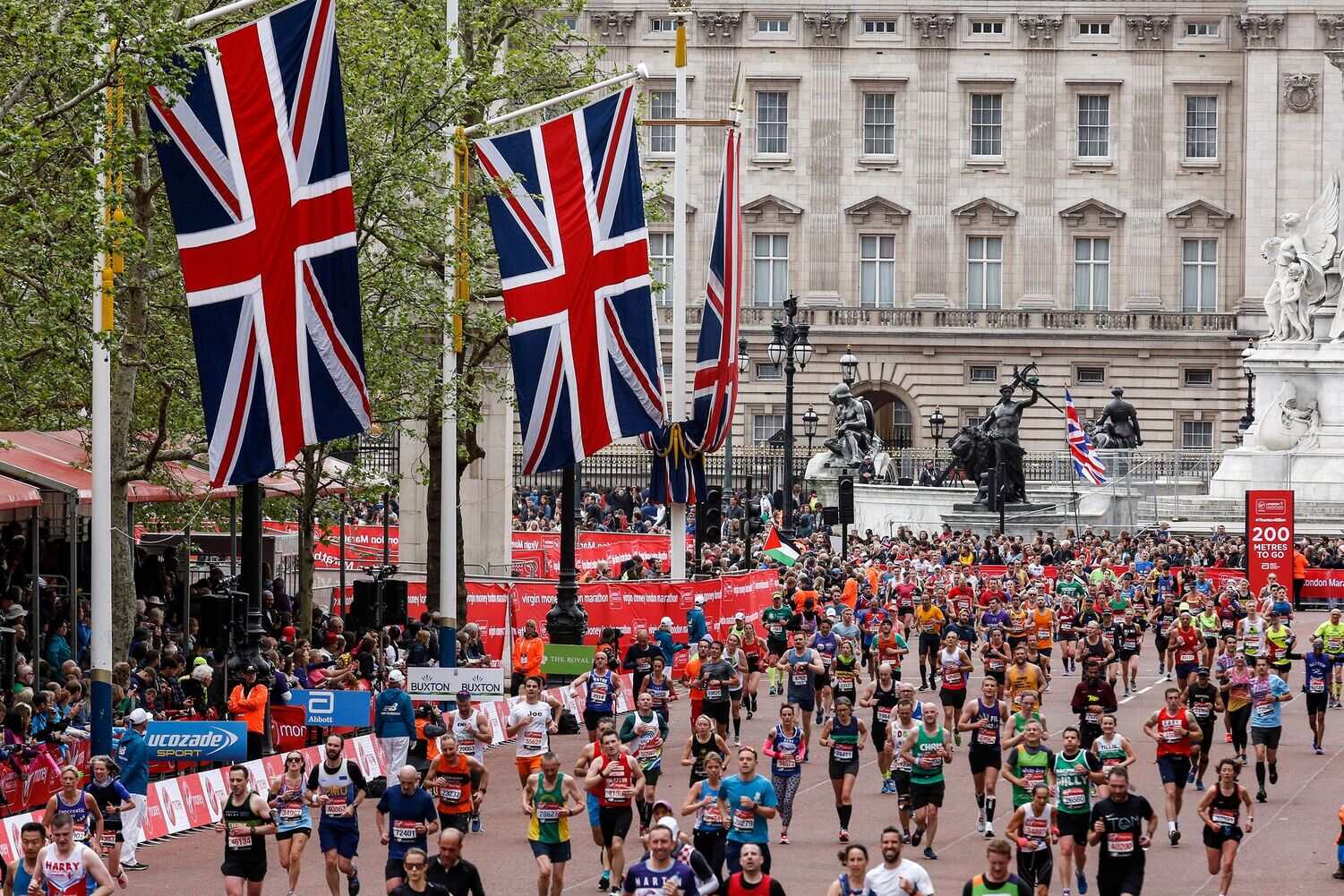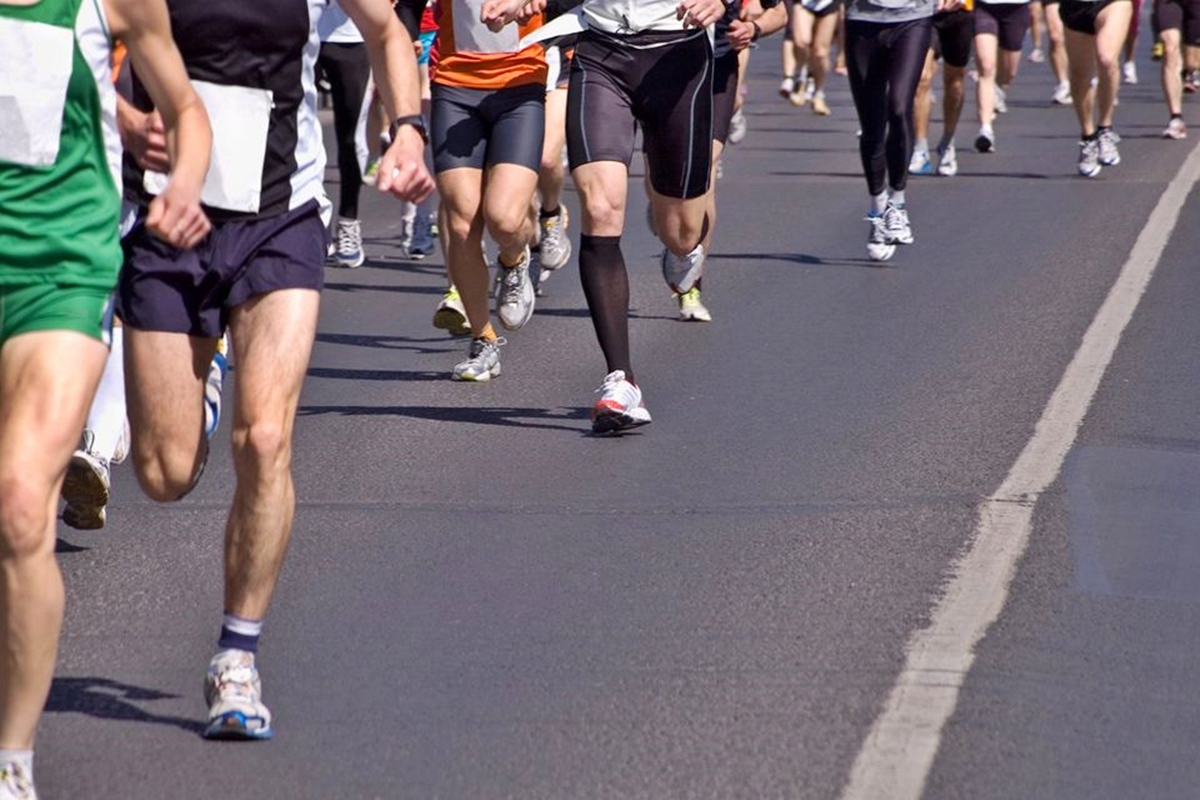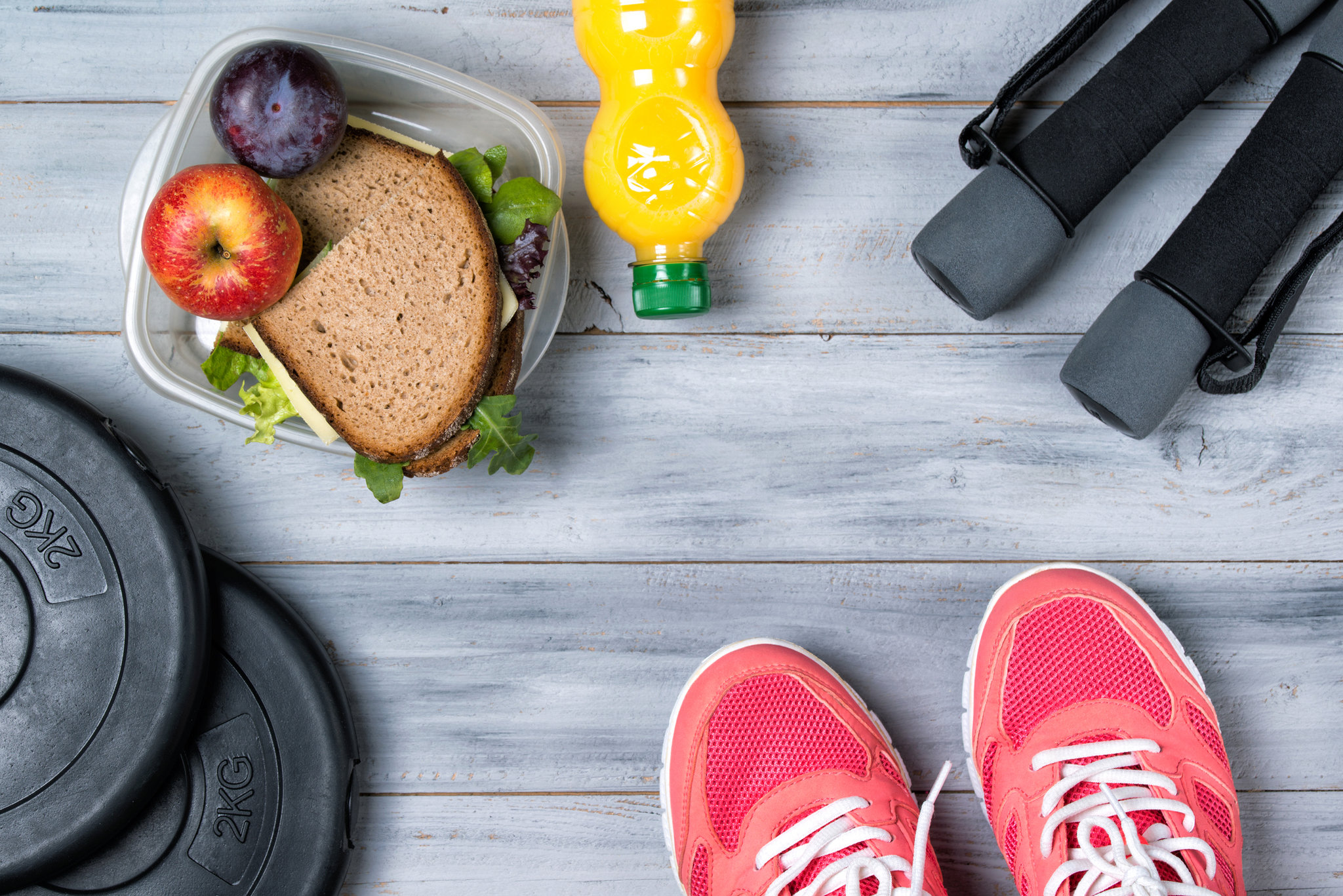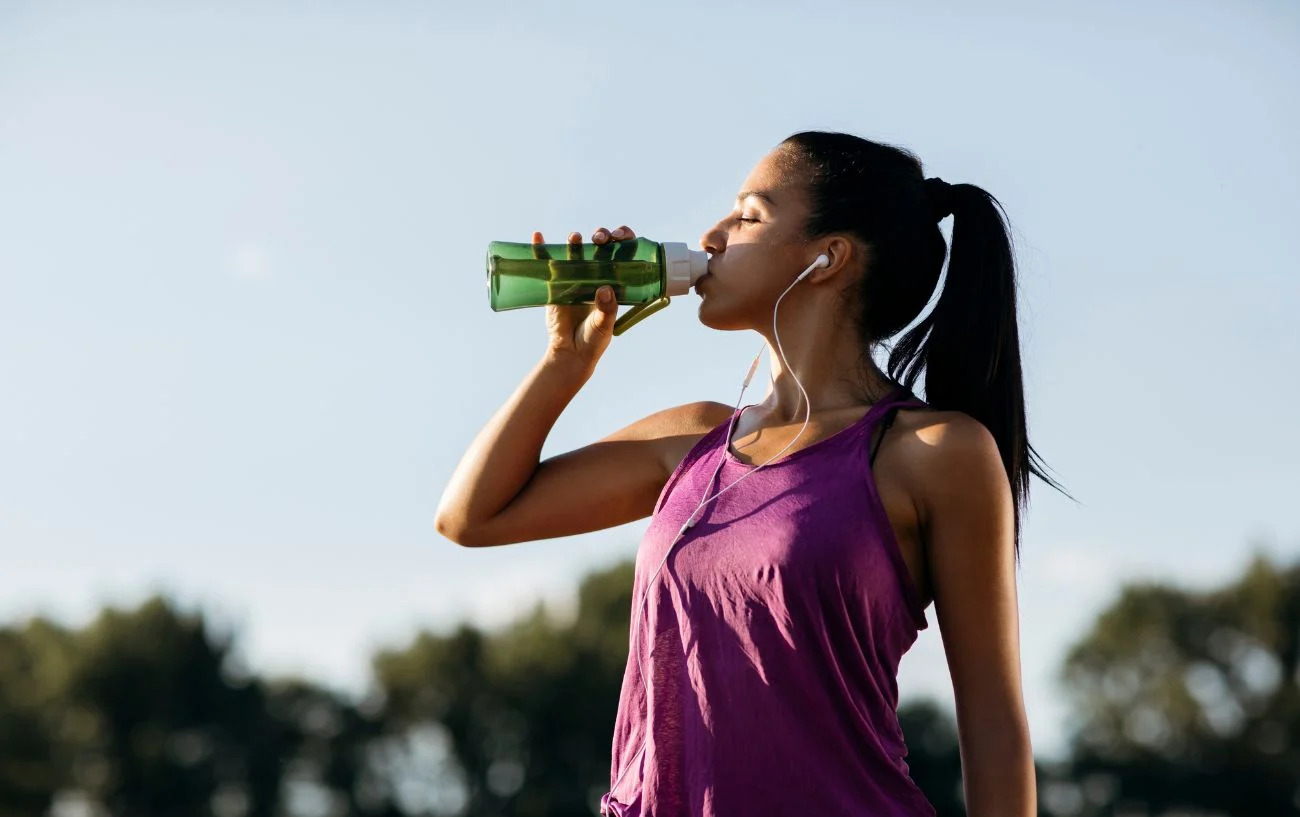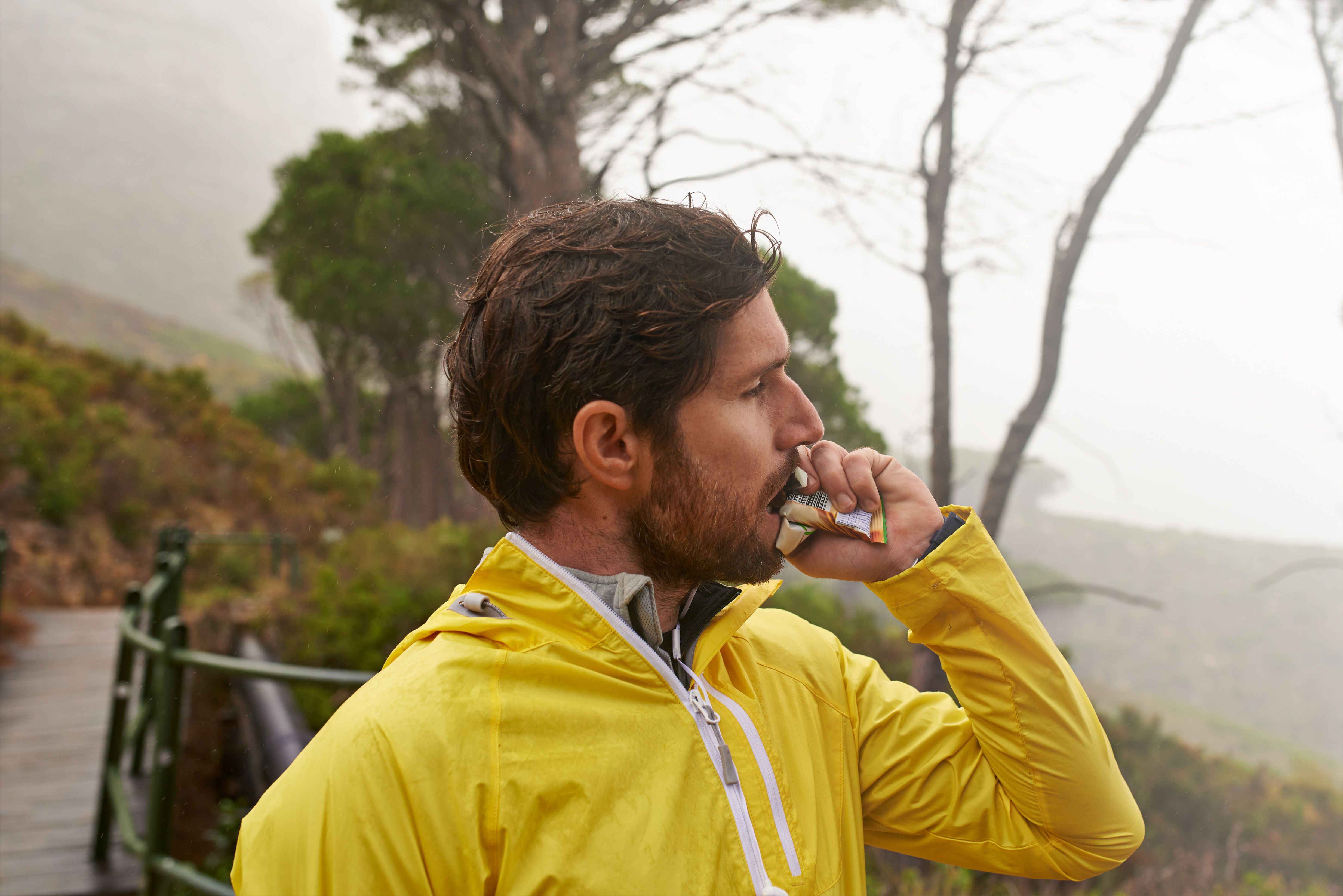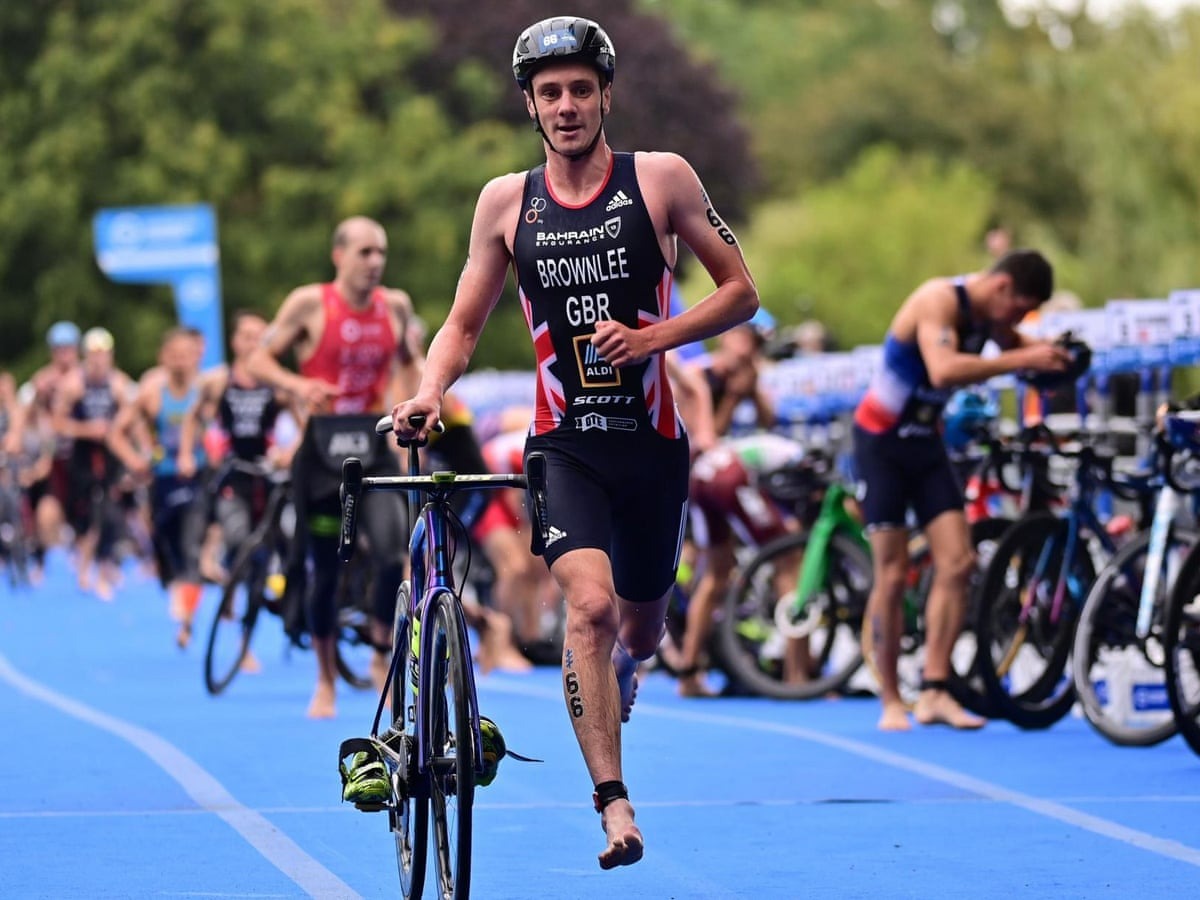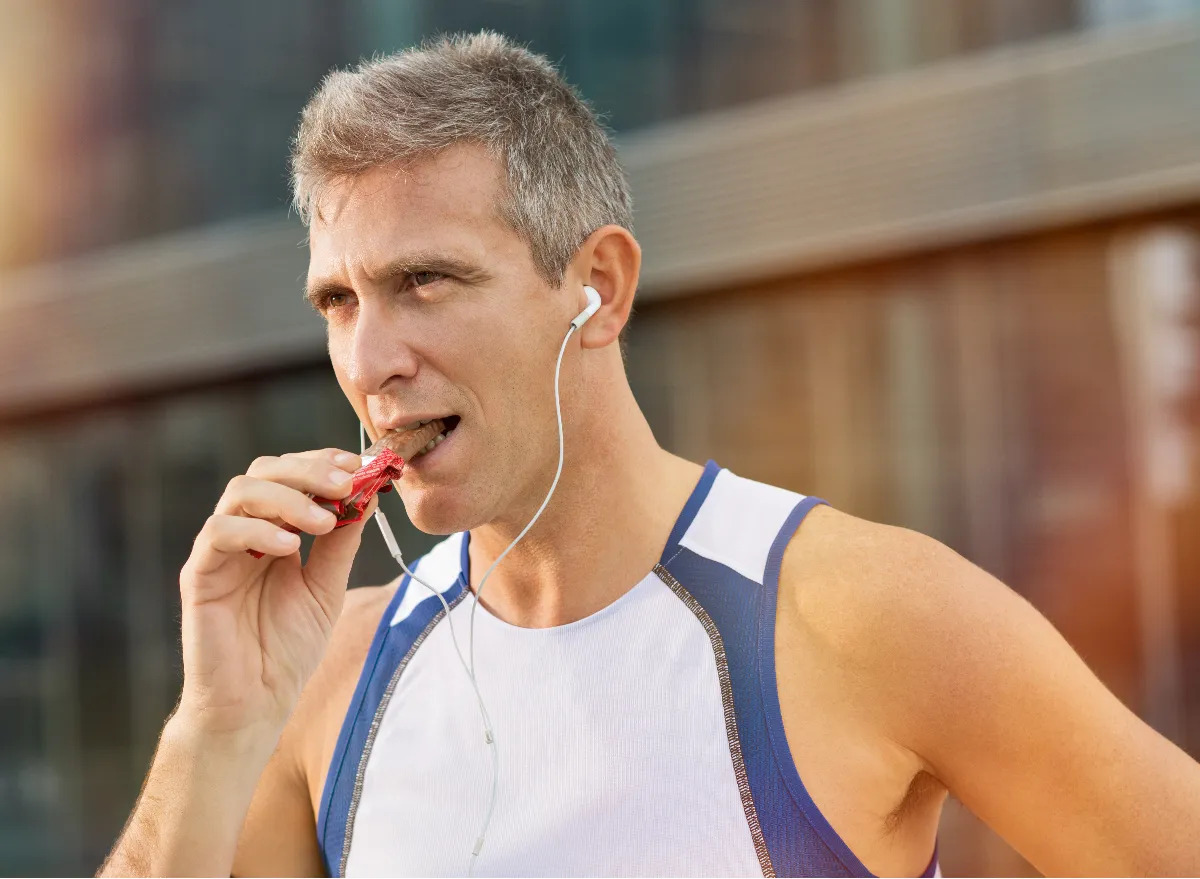Home>Misc>Featured>How Much Water Should You Drink During A Marathon
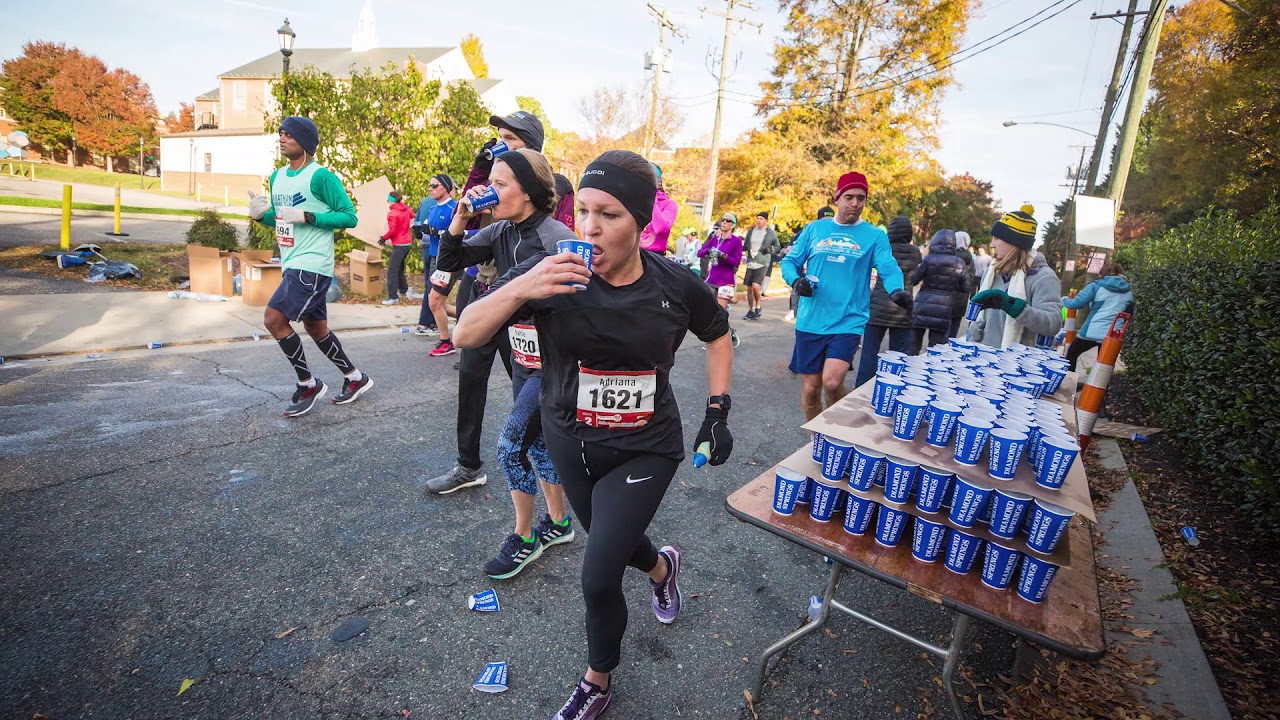

Featured
How Much Water Should You Drink During A Marathon
Published: August 12, 2023
Discover the optimal water intake during a marathon with our featured guide. Stay hydrated and perform at your best with expert advice on how much water you should drink.
Introduction
Running a marathon is a test of endurance and stamina. Whether you’re a seasoned marathon runner or a first-timer, one crucial aspect that should never be overlooked is proper hydration. Hydration plays a vital role in maintaining optimal performance and preventing dehydration-related issues during a marathon. In this article, we will explore the importance of hydration during a marathon, factors that affect hydration needs, guidelines for water intake before the marathon, recommended water consumption during the race, hydration strategies for during the marathon, signs of dehydration to watch out for, and tips for staying hydrated after the marathon.
Adequate hydration is essential for several reasons. First and foremost, water is responsible for regulating body temperature, which is especially crucial when engaging in strenuous physical activity such as running a marathon. It also helps in lubricating the joints, cushioning organs, and carrying nutrients and oxygen to the muscles. Additionally, water aids in the removal of waste products from the body through sweat and urine.
During a marathon, your body loses fluids through sweat. If you don’t replenish these fluids, you can become dehydrated, which can negatively impact your performance and potentially lead to medical complications. Dehydration can cause muscle cramps, dizziness, fatigue, and even heat stroke. These consequences can hinder your ability to finish the race or put your well-being at risk.
Factors such as temperature, humidity, and individual body composition can affect your hydration needs during a marathon. Running in hot and humid conditions increases the amount of sweat you produce, resulting in greater fluid loss. Similarly, if you have a higher percentage of body fat, you may require more water as fat tissue contains less water compared to lean muscle mass.
Now that we understand the importance of staying hydrated during a marathon and the factors that influence our hydration needs, let’s move on to the guidelines for water intake before the race.
Importance of Hydration During a Marathon
Hydration plays a critical role in maintaining optimal performance during a marathon. As you push your body to its limits, you deplete your energy stores and lose vital fluids through sweat. Failing to adequately hydrate can lead to dehydration, which can have severe consequences on your performance and overall well-being.
Proper hydration is essential for regulating body temperature. When you run, your body temperature rises, and sweating is your body’s natural way of cooling down. Sweat helps dissipate heat and prevents overheating, which can lead to heat exhaustion or heat stroke. By replenishing your fluids, you ensure that your body can continue to regulate its temperature effectively.
In addition to temperature regulation, hydration also affects your cardiovascular system. When you are properly hydrated, your blood volume remains stable, which allows for adequate circulation of oxygen and nutrients to your muscles. This increased blood flow helps maintain performance and delay the onset of fatigue.
Moreover, being well-hydrated during a marathon can prevent muscle cramps. Dehydration can disrupt the balance of electrolytes in your body, leading to muscle spasms. By drinking enough water and consuming electrolyte-rich fluids or sports drinks, you can help maintain the right electrolyte balance and minimize the risk of cramping.
Hydration is not only important during the race but also in the days leading up to it. Pre-race hydration is crucial to ensure that your body starts the race in a well-hydrated state. Many experts recommend gradually increasing fluid intake in the days leading up to the marathon to ensure optimal hydration levels.
To determine your hydration needs during the race, you can monitor your sweat rate. Weigh yourself before and after a training run to calculate how much fluid you lose through sweat. For every pound lost, you should aim to drink around 16-24 ounces of fluid to rehydrate adequately.
Remember that your hydration needs may vary depending on environmental conditions, your individual body composition, and sweat rate. It’s always a good idea to consult with a sports nutritionist or a healthcare professional to determine a hydration plan that suits your specific needs.
In the following sections, we will explore guidelines for water intake before the marathon, recommended water consumption during the race, and strategies to stay hydrated during the marathon.
Factors That Affect Hydration Needs
Several factors can influence an individual’s hydration needs during a marathon. Understanding these factors is crucial for adequately hydrating your body and optimizing your performance. Let’s take a closer look at the key factors that can affect your hydration needs:
- Weather Conditions: The temperature and humidity levels can significantly impact your fluid loss through sweat. Running in hot and humid conditions promotes excessive sweating, leading to increased fluid loss. You may need to drink more water to compensate for the increased sweat rate and prevent dehydration.
- Exercise Intensity and Duration: The duration and intensity of your running can affect how much fluid you lose. Longer and more intense runs result in higher sweat rates and, consequently, greater fluid loss. These factors should be taken into account when determining your hydration strategy.
- Individual Sweat Rate: Each individual has a different sweat rate, which is influenced by genetics, fitness level, and acclimatization to heat. Some people naturally sweat more than others, and understanding your own sweat rate can help determine how much fluid you need to replenish during the marathon.
- Body Composition: Body composition, specifically body weight and percentage of body fat, can impact hydration needs. People with higher body weight and more muscle mass may require more fluids due to their larger water content. On the other hand, individuals with higher body fat percentages may need less water as fat contains less water compared to muscle mass.
- Acclimatization: If you’re running a marathon in a different climate from what you’re accustomed to, it may take time for your body to acclimate. During the acclimatization process, your sweat rate may increase as your body adapts to the new environmental conditions. It’s important to monitor your hydration status closely during this period.
- Personal Factors: Certain personal factors, such as gender, age, and general health, can also impact hydration needs. Men generally sweat more than women, and older adults may have reduced thirst sensation, making it crucial for them to be proactive about staying hydrated.
By considering these factors, you can tailor your hydration strategy to meet your specific needs. Regularly monitoring your fluid intake and adjusting it accordingly during the marathon is key to maintaining optimal hydration and maximizing your performance.
Now that we understand the various factors that can affect hydration needs, let’s move on to the guidelines for water intake before the marathon.
Guidelines for Water Intake Before the Marathon
Proper hydration before a marathon is crucial for starting the race in a well-hydrated state. By following these guidelines for water intake before the marathon, you can ensure optimal hydration levels and set yourself up for success:
- Start hydrating in advance: Don’t wait until the day of the race to begin hydrating. Gradually increase your fluid intake in the days leading up to the marathon. Aim to drink at least eight cups (64 ounces) of water per day in the two to three days before the race.
- Monitor urine color: Check the color of your urine to gauge your hydration status. Pale or clear urine indicates proper hydration, while dark-colored urine signifies dehydration. Aim for light-colored urine in the days leading up to the marathon.
- Avoid excessive alcohol and caffeine: Both alcohol and caffeine can have dehydrating effects on the body. Limit your consumption of these beverages in the days before the race to maintain optimal hydration.
- Include electrolytes: Electrolytes are essential minerals that help maintain fluid balance in the body. Along with water, it’s important to consume foods or sports drinks that contain electrolytes in the days leading up to the marathon. This will help replenish electrolyte stores and support optimal hydration.
- Don’t overhydrate: While it’s important to hydrate adequately, it is equally crucial not to overhydrate. Drinking excessive amounts of water can lead to a condition called hyponatremia, which is characterized by low sodium levels in the blood. This can be dangerous and lead to symptoms such as nausea, vomiting, headache, and confusion.
- Listen to your body: Pay attention to your body’s thirst signals and drink when you’re thirsty. Thirst is a reliable indicator of your body’s need for fluid replenishment. Don’t force yourself to drink excessive amounts of water if you’re not feeling thirsty.
These guidelines will help ensure that you start the marathon well-hydrated. Remember that everyone’s hydration needs are unique, so it’s important to listen to your body and adjust your fluid intake accordingly. Now that we’ve covered pre-race hydration, let’s move on to discuss the recommended water consumption during the actual marathon.
Recommended Water Consumption During a Marathon
Proper hydration during a marathon is essential to maintain performance, prevent dehydration, and avoid the potential risks associated with inadequate fluid intake. To ensure you stay properly hydrated during the race, follow these recommended guidelines for water consumption:
- Pre-hydration: Begin hydrating before the race starts. Aim to drink 16-20 ounces of water or a sports drink 2-3 hours before the race. This will help ensure that you start the marathon with optimal hydration levels.
- Drink at aid stations: Take advantage of the water and sports drink provided at aid stations along the marathon route. Drink at regular intervals, but avoid excessive gulping to prevent discomfort or stomach issues. Sip slowly and pace your fluid intake throughout the race.
- Follow thirst cues: Listen to your body’s thirst signals during the marathon. While it’s important to have a fluid plan in place, relying on your thirst is an effective way to gauge your hydration needs. Drink when you feel thirsty, but don’t overdrink if you don’t feel the need.
- Aim for consistency: Consistency is key when it comes to hydration during a marathon. Small, frequent sips of water or sports drink every 15-20 minutes can help maintain a steady fluid intake without overwhelming your stomach.
- Consider electrolytes: Along with hydration, replenishing electrolytes is important during longer distance runs. Electrolytes such as sodium, potassium, and magnesium are lost through sweat and need to be replaced to maintain proper muscle function and hydration. Consider consuming electrolyte-rich sports drinks or taking electrolyte supplements during the marathon.
- Be aware of dilution: While staying hydrated is crucial, be mindful of hyponatremia, a condition caused by excessive water consumption. Diluting your body’s sodium levels can be dangerous. If you’re consuming a significant amount of water during the marathon, make sure to also consume electrolyte-rich fluids or foods to maintain the proper balance.
During the marathon, it’s important to find what works best for you in terms of hydration. Practice your hydration strategy during training runs to determine the right amount of fluid intake that keeps you well-hydrated without causing any discomfort or excessive urge for bathroom breaks.
Now that we’ve covered guidelines for water consumption during the marathon, let’s discuss some effective hydration strategies to implement during the race.
Hydration Strategies for During the Marathon
Implementing effective hydration strategies during a marathon is essential for maintaining optimal performance and preventing dehydration. Here are some key strategies to consider:
- Create a hydration plan: Develop a hydration plan before the marathon that outlines when and how much fluid you will consume at aid stations. Consider factors such as the weather conditions, your sweat rate, and the distance between aid stations.
- Alternate water and sports drinks: Drinking water alone may not be sufficient to replenish electrolytes lost through sweat. Alternate between water and sports drinks at aid stations to ensure you’re getting both hydration and electrolyte replenishment.
- Carry your own fluids: Some runners prefer to carry their own hydration system, such as a handheld water bottle or a hydration pack. This allows them to have access to fluids whenever needed, especially if aid stations are limited or if they have specific hydration preferences.
- Practice drinking on the run: Train your body to drink fluids while running. Practice taking small sips of water or sports drink without interrupting your stride. This will help you maintain your pace and hydration levels during the actual marathon.
- Use visual cues: Mentally prepare for aid stations by visualizing them in advance. This can help you anticipate when to hydrate and ensure you don’t miss the opportunity to replenish your fluids.
- Pay attention to your body: Listen to your body’s signals during the race. If you feel thirsty, drink fluids. If you experience signs of dehydration such as dry mouth, dizziness, or fatigue, make hydration a priority. Don’t ignore the early warning signs.
- Don’t rely solely on thirst: While thirst is a good indicator of hydration needs, it may not be enough to rely solely on thirst cues during a marathon. By the time you feel thirsty, you may already be partially dehydrated. Strive to maintain a consistent and proactive approach to hydration throughout the race.
- Be mindful of temperature: If running in hot weather, consider pouring water over your head, neck, and body at aid stations to cool down. This can help regulate your body temperature and prevent overheating.
Remember that everyone’s hydration needs can vary, so it’s important to experiment with different strategies during your training runs to determine what works best for you. Hydration is a key component of marathon success, so be proactive, stay disciplined, and pay attention to your body’s signals.
Now that we’ve discussed hydration strategies during the marathon, let’s move on to the signs of dehydration to watch out for.
Signs of Dehydration to Watch Out For
During a marathon, it’s important to be aware of the signs of dehydration to address them promptly and prevent any further complications. Dehydration can negatively impact your performance and overall well-being. Here are some common signs of dehydration to watch out for:
- Thirst: Feeling excessively thirsty is one of the earliest signs of dehydration. If you’re experiencing persistent thirst, it’s an indication that your body needs fluid replenishment.
- Dry mouth and throat: A dry or sticky feeling in your mouth and throat can be a sign that you’re becoming dehydrated. Saliva production decreases when the body is lacking fluids.
- Dark-colored urine: Monitoring the color of your urine can provide valuable insights into your hydration status. Dark yellow or amber-colored urine is a clear sign of dehydration. Ideally, your urine should be a pale, straw-like color.
- Decreased urine output: In addition to color changes, a decrease in urine output or infrequent urination can be an indication of dehydration. If you notice that you’re urinating less frequently than usual during the marathon, it may be a sign that you need to hydrate more effectively.
- Fatigue and weakness: Dehydration can lead to feelings of fatigue and weakness, which can significantly impact your performance. If you find that your energy levels are decreasing, it may be due to inadequate fluid intake.
- Muscle cramps: Dehydration can disrupt the balance of electrolytes in your body, leading to muscle cramps or spasms. If you experience sudden or persistent muscle cramps during the race, it may be a sign that you need to hydrate and replenish electrolytes.
- Dizziness or lightheadedness: Dehydration can cause a drop in blood pressure, leading to feelings of dizziness or lightheadedness. If you feel faint or lightheaded during the marathon, it’s important to prioritize hydration to avoid further complications.
- Headaches: Dehydration can contribute to the onset of headaches or migraines. If you start experiencing persistent headaches during the race, it may be an indication that you’re not adequately hydrated.
- Confusion or difficulty concentrating: Severe dehydration can affect cognitive function, leading to confusion, difficulty concentrating, or impaired decision-making. If you notice mental fog or difficulty staying focused, it may be a sign that you need to hydrate immediately.
Being aware of these signs can help you take the necessary steps to address dehydration early on. If you experience any of these symptoms during the marathon, it’s important to slow down, seek shade, and prioritize hydration. Remember, prevention is always better than cure when it comes to dehydration.
In the next section, we will discuss tips for staying hydrated after the marathon to aid in recovery and replenishment.
Tips for Staying Hydrated After the Marathon
Proper hydration after completing a marathon is essential for recovery and replenishing the fluids and electrolytes lost during the race. Here are some important tips to help you stay hydrated post-marathon:
- Continue drinking fluids: Even though the race is over, it’s important to continue hydrating. Keep drinking water or electrolyte-rich fluids to replenish the fluids your body lost during the marathon. Aim to drink at regular intervals throughout the day.
- Include electrolytes: In addition to water, replenish electrolytes that were lost through sweat during the marathon. Consuming foods or drinks that contain electrolytes, such as sports drinks, coconut water, or bananas, can help restore the balance of these crucial minerals in your body.
- Monitor urine color: Use the color of your urine as an indicator of your hydration status. Keep an eye on your urine and aim for a pale, straw-like color. If it appears dark yellow, it indicates that you need to drink more fluids.
- Consume hydrating foods: Incorporate foods with high water content into your post-marathon meals. Fruits and vegetables like watermelon, cucumbers, oranges, and strawberries are not only hydrating but also rich in vitamins and minerals that aid in recovery.
- Listen to your body: Pay attention to your body’s signals and drink when you feel thirst. Thirst is a reliable indicator of your body’s need for fluid replenishment. Don’t force yourself to drink excessive amounts of water, but ensure that you are satisfying your body’s thirst cues.
- Stay mindful of alcohol and caffeine intake: While it may be tempting to celebrate your marathon achievement with a few drinks, alcohol and caffeine can dehydrate the body. Limit your consumption of these beverages as they can impede the rehydration process.
- Replenish gradually: Replenishing fluids after a marathon should be done gradually rather than chugging large amounts of water all at once. Sip fluids slowly and consistently throughout the day to ensure proper absorption and hydration.
- Consider a sports drink: If you had an intense or prolonged race, you may have depleted a significant amount of electrolytes. In such cases, consuming a sports drink that provides both fluids and electrolytes can aid in recovery and rehydration.
- Rest and recover: Give your body the time it needs to recover after the marathon. Proper rest and sleep allow your body to rebuild and rehydrate. Take the opportunity to relax and rejuvenate before returning to your regular activities.
Remember, staying hydrated after a marathon is just as important as hydrating during the race itself. By following these tips, you can support your body’s recovery process and ensure that you bounce back quickly.
Now that we have covered the importance of hydration during a marathon, factors that affect hydration needs, guidelines for water intake before and during the race, hydration strategies, signs of dehydration, and tips for staying hydrated post-marathon, you are well-equipped to maintain optimal hydration for your next marathon adventure.
Conclusion
Proper hydration is an essential component of a successful marathon experience. Understanding the importance of hydration during a marathon and implementing effective hydration strategies can significantly impact your performance, recovery, and overall well-being. By staying hydrated, you can maintain optimal body temperature, support your cardiovascular system, prevent muscle cramps, and enhance overall endurance.
Factors such as weather conditions, exercise intensity and duration, individual sweat rate, body composition, and acclimatization can influence your hydration needs during a marathon. It is important to pay attention to these factors and adjust your hydration plan accordingly to ensure you stay properly hydrated throughout the race.
Before the marathon, following guidelines for water intake, monitoring urine color, avoiding excessive alcohol and caffeine, and including electrolytes in your diet can help establish a good hydration base. During the marathon, drinking at aid stations, following your thirst cues, and alternating between water and sports drinks for electrolyte replenishment are crucial for maintaining optimal hydration.
It is equally important to be aware of the signs of dehydration during a marathon, such as excessive thirst, dry mouth, dark-colored urine, fatigue, muscle cramps, dizziness, headaches, and confusion. By recognizing these signs, you can take proactive steps to rehydrate and prevent further complications.
After completing a marathon, staying hydrated remains vital for recovery. Drinking fluids, including electrolytes, consuming hydrating foods, monitoring urine color, and gradually replenishing fluids are key elements of post-race hydration. Additionally, being mindful of alcohol and caffeine consumption and allowing your body adequate rest and recovery play a crucial role in maintaining hydration levels.
In conclusion, proper hydration is not only necessary to perform your best during a marathon but also to ensure your safety and well-being. By implementing the guidelines and strategies discussed in this article, you can optimize your hydration, enhance your performance, and have a successful marathon experience.
